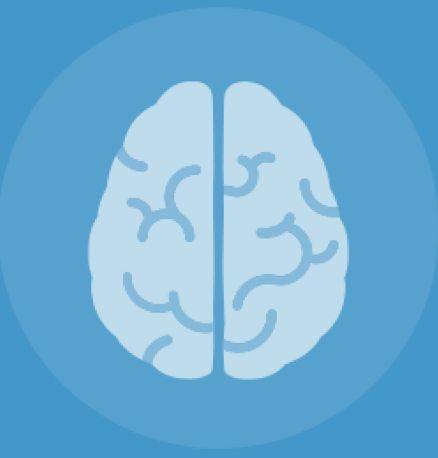By Rebecca Jones
We all have a story or an accumulation of stories that make us who we are. It’s part of being human. It’s in our DNA. If those stories vanish, what are we then?
Six Million Living with Alzheimer’s Disease

More than six million people in the United States live with Alzheimer’s disease. A condition that cruelly extinguishes memories one by one—everything from the memory of holding a child for the first time to the touch of a fleeting lost love or the bracing courage we felt when we stood up for ourselves. With Alzheimer’s disease, those memories vanish until you have no stories left.
Not too long ago, I learned from a 23andMe genetic test that I carry the ?4 variant in the APOE gene, predisposing me toward late-onset Alzheimer’s disease.* Seeing “increased risk” in writing shook me, but it wasn’t surprising. Three of my aunts on my father’s side died of Alzheimer’s disease. After a series of follow-up visits with doctors, confirmatory testing, and then brain scans, I learned that I had early signs of Alzheimer’s disease. Soon after learning all this, I became part of a clinical trial and was among the first wave of patients treated with Eisai and Biogen’s newly approved drug, Leqembi.
My Story
I want to share my story because I believe we should all rethink how we approach genetic testing for Alzheimer’s disease or any disease. Knowledge is power. Learning early through a consumer genetic test alerted me to a risk I didn’t know about before I was symptomatic. It was information that my doctors could follow up on, and then, miraculously, there was a clinical trial for which I was a good candidate. If I’d waited until I was symptomatic, it might have been too late.
I’m a mother of four and grandmother of ten. Before I retired, I was a marketing manager for a pharmaceutical company focusing on oncology. Maybe that made me particularly ready to understand the importance of learning one’s genetic risk and navigating participation in a clinical trial.
New Treatments
For too long, the prognosis for people with Alzheimer’s was bleak. So much so that doctors recommended against learning of your genetic risk because, they reasoned, there was little you could do about it; learning of your risk would cause anxiety and stress. Research doesn’t support that, but more importantly, the options for people with an early diagnosis have changed. I’m hoping that attitudes about genetic testing, or new types of blood testing to identify those at risk or who may have early-stage Alzheimer’s, change as well.
Learning of my risk and then getting a diagnosis spurred me to action. I studied up on new research, promising treatments, and interventions that had only recently become available. Learning of my risk wasn’t easy, but I knew it was something I couldn’t ignore. I had to educate myself.
A Family Conversation
After I learned of my risk, I did what a lot of people do when confronted with a health issue: I talked to my family. Alzheimer’s runs in families, so this was more than just seeking counsel; I wanted my sisters and my adult children to know that the risk I faced might be something they should be aware of as well. My older sister and two of my daughters tested and learned that they, too, carry the same genetic risk. They call this the cascade effect of genetic testing. One family member learns of a risk and can alert other family members to a potential risk they might not have known otherwise.
Beyond talking to family, I spoke to my doctor, who fortunately didn’t just brush it off. What followed was confirmatory testing, baseline testing for cognitive impairment — I had some — and referral to a neurologist. A brain scan revealed amyloid plaque build-up, a sign of the disease.
A Clinical Trial
I learned that I had early signs of Alzheimer’s. But I also knew I was a good candidate for a drug that was in clinical trials. I volunteered. I also learned that I was the perfect candidate for the drug Leqembi. The FDA approved Leqembi to treat people with early Alzheimer’s disease as a way to slow its progression. Knowing your APOE status is recommended before treatment because individuals with two copies of the APOE e4 variant have an increased risk for side effects. My older sister and I began infusion treatments together.
The biggest takeaway for me is that, just like with cancer, the earlier a diagnosis, the better the odds of treating Alzheimer’s. And yet, often, people only learn that they have Alzheimer’s after symptoms become hard to ignore. However, by then, the disease has already caused significant damage.
The Power of Knowing
How many people are diagnosed with Alzheimer’s before significant cognitive impairment? Not many, unfortunately.
I was lucky. I had access to a genetic test that informed me of my risk early. I didn’t ignore it. I acted early with my doctor’s help. My hope lies in more people like me getting genetic testing, learning of their potential risk, and then following up and getting an early diagnosis.
It’s given me the chance to use new treatments to stave off the erasure of my memories. I hope it will help prevent Alzheimer’s from robbing me of the stories that make up my life.
Rebecca Jones is a mother of four and grandmother of ten. She is retired and was formerly a marketing manager for a pharmaceutical company focused on oncology. She lives in Tulsa, Oklahoma.
Note:
*The 23andMe PGS test uses qualitative genotyping to detect select clinically relevant variants in the genomic DNA of adults from saliva to report and interpret genetic health risks. It is not intended to diagnose any disease. Your ethnicity may affect the relevance of each report and how your genetic health risk results are interpreted. Each genetic health risk report describes if a person has variants associated with a higher risk of developing a disease but does not describe a person’s overall risk of developing the disease. The test is not intended to tell you anything about your current state of health or to be used to make medical decisions, including whether or not you should take a medication, how much of a medication you should take, or determine any treatment.
The Late-Onset Alzheimer’s Disease genetic health risk report is indicated for reporting of the e4 variant in the APOE gene. It describes if a person has a variant associated with an increased risk of developing late-onset Alzheimer’s disease. The e4 variant included in this report is found and has been studied in many ethnicities. Detailed risk estimates have been studied the most in people of European descent.




